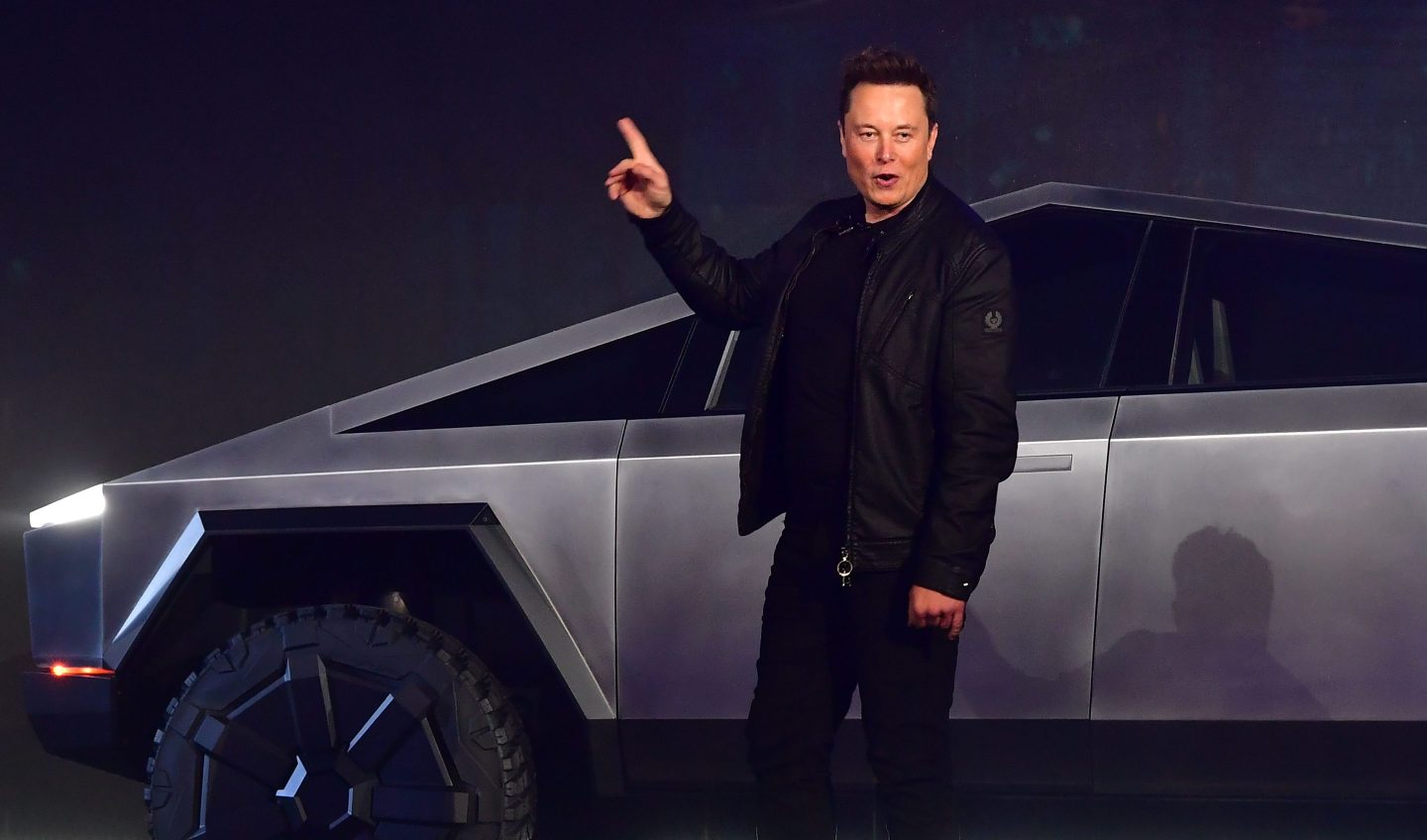- Tesla’s new Cybertruck inventory, including the entry-level AWD version, is already seeing markdowns just one quarter after ending its Foundation Series for early adopters—hinting at potential challenges in maintaining strong factory demand.
Elon Musk has already begun slashing the price of his entry-level Cybertruck after it has only been on offer for just one quarter.
In October, Tesla began collecting orders for its non-Foundation Series vehicles, including the standard all-wheel drive version, which retails for just below $80,000—the ceiling for commercial vehicles eligible to receive federal EV tax credits.
Listings on Tesla’s U.S. website shows brand new AWD vehicles with in some cases $1,700 knocked off the list price depending on zip code and trim level.
BREAKING: Tesla has officially introduced inventory discounts for the first time in the US for brand new Cybertrucks.
— Sawyer Merritt (@SawyerMerritt) January 15, 2025
Tesla is offering up to $1,600 off new non-Foundation Series Cybertrucks, while Demo vehicles get discounts up to $2,630 off.
This means that including the… pic.twitter.com/JAj8Zhjm6Q
Discounting is typically a strong hint at the first signs of customer fatigue, even for the most affordable Cybertruck.
The company already suffered from a bloated inventory of its Foundation Series, designed for the earliest of early EV adopters, but that was blamed on its $20,000 markup over the base price.
Musk famously once predicted the model could struggle due to its polarizing design.
“To be frank, there is always some chance that Cybertruck will flop, because it is so unlike anything else. I don’t care,” the Tesla CEO said before the vehicle launched.
“Other trucks look like copies of the same thing, but Cybertruck looks like it was made by aliens from the future.”
Tesla, which paused production last month for three days, did not respond to a Fortune request for comment.
Enough deposits are thought to be in the order book to cover years of production
Sales initially appeared promising, with roughly 39,000 vehicles in its first full year of production, eclipsing the 33,500 from the benchmark Ford F-150 Lightning. But discounting is not so much a question of straightforward volume, either in isolation or relative to peers.
Rather, all that is needed is for sales to miss more optimistic planning assumptions that ensure the installed production capacity of a manufacturing plant is filled.
Musk has been clear that Tesla prices its vehicles transparently to match supply with demand dynamically.
It would be surprising if Tesla struggled to find enough buyers for the full price of the new entry version after just three months.
Initial indications suggested there were deposits sufficient for 2 million Cybertrucks.
Given that Tesla anticipates building roughly 250,000 units annually starting next year, that would equate to an order book that is some eight years long.
Granted, some fans had made multiple deposits, in part because there was no risk (the $100 was minor for the price and fully refundable), and some may have speculated on flipping them for a profit when that was still a viable idea.
But even accounting for that, it seemed like Musk had another bonafide hit on his hands.
Then reality hit.
VIN data (Vehicle Identification Numbers) shows that Cybertruck performance version sales returned to normal in Q4 2024. Tesla pulled a clever trick in Q3 2024 to make the Cybertruck profitable for one quarter by holding back performance version deliveries from earlier quarters… pic.twitter.com/ctGdVNsDoO
— Troy Teslike (@TroyTeslike) January 5, 2025
The specifications promised in late 2019 could not be even remotely reached.
Instead of costing $70,000 in the tri-motor version, the Cyberbeast, as it is now known, costs $100,000, and for that steeper sticker price, the range tops out at 320 miles instead of the 500 originally targeted.
Popular tech reviewer sold his
The Cybertruck is a highly divisive vehicle.
Like any trailblazing product, it dares ask not what customers want in their next pickup, but rather what they will want once they finally see it.
It completely redefines a pickup segment that has seen very little groundbreaking innovation in decades, as execs saw little reason to fix what isn’t broken.
The Tesla’s unique angular design is a direct result of the extremely durable stainless steel alloy employed that can repel virtually any ding or minor dent to the fitted exterior panels.
Yet when it came out, there were several initial quality problems, with one otherwise happy owner telling Fortune last year of his hellish experience with the vehicle.
Add to that anecdotal reports from prospective buyers claiming they are having difficulty getting insurance coverage due to continued recalls and myriad build issues, and demand is proving more tenuous than believed.
Recently, popular tech reviewer Marques Brownlee, who helped seal the fate of EV startup Fisker, admitted selling his Cybertruck.













